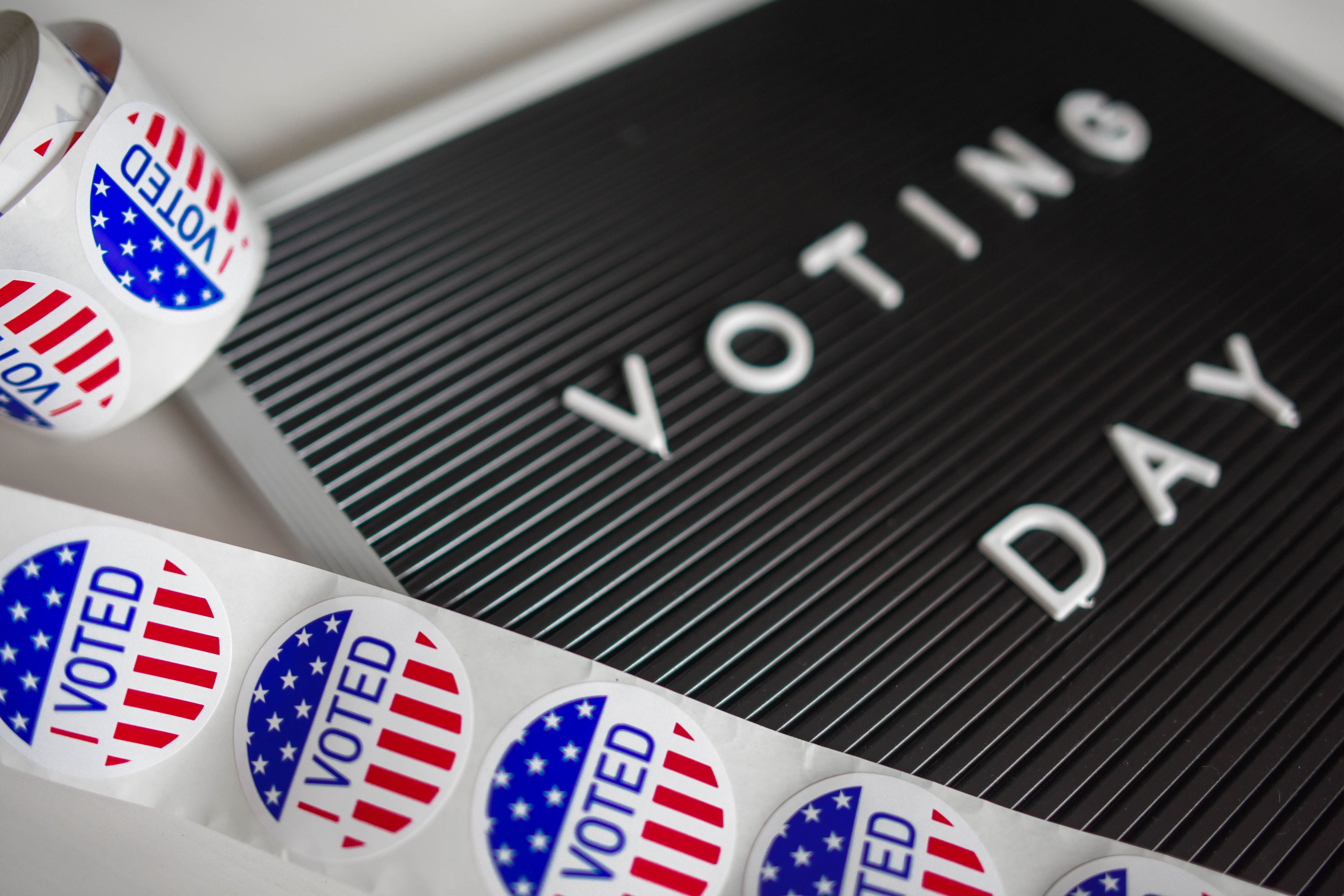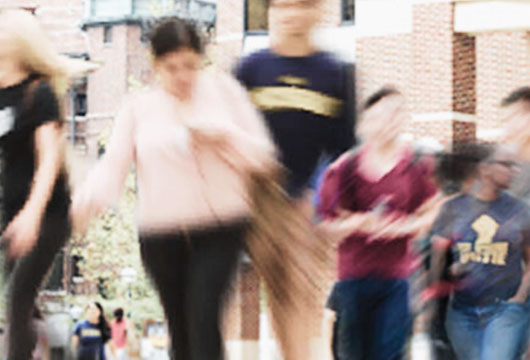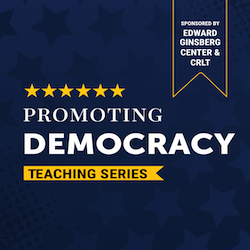
This midterm election season brings an important opportunity for students and instructors to connect classroom learning to the value of civic engagement. Developments in law and politics at the national level have highlighted the particular importance of state and local civic engagement.
The Center for Research on Learning and Teaching works with instructors to think through approaches to incorporating discussion of the midterm election and its links to civic engagement into their courses, as well as strategies for responding in the moment when these issues arise.
Encouraging students to engage in the US democratic process is a non-partisan activity
This post shares highlights from resources curated for faculty and staff to not only encourage voter engagement, but also to support the development of students’ habits of democracy before and after the upcoming election. Regardless of citizenship status, domestic and international students benefit from understanding how democracy works.
Key dates for the 2022 Midterm Elections
- September 27: UMMA Satellite Clerk's Office opens
- September 29: Absentee ballots become available
- October 12: Duderstadt Gallery Satellite Clerk's Office opens
- After October 24, students need to register to vote in person WITH proof of residency at a Secretary of State branch or with the local clerk.
- Election Day is November 8, 2022 (For U.S. local, state and federal)
- Additional voter information available at govote.umich.edu
Increase voter registration and turnout by encouraging students to vote
Studies show that encouragement from faculty, staff, and other students makes a significant difference to student registration and turnout (Bennion and Nickerson, 2016; DellaVigna, List, Malmendier & Rao, 2016; Gerber and Rogers, 2009). Here are some simple ways you can encourage students to vote in your class:
- Be sure to read through the University guidelines for elections and ballot initiatives
- Share your own voting plan about when and where you will vote
- Share the UMICH Votes website, which provides voter registration assistance and FAQs to students, regardless of where they hail from
- Encourage students to be informed voters
- Explore more ideas here
Connect your discipline and course content to policy issues
Helping students draw connections between policy or legislation and course content, disciplinary questions, and field-related priorities is critical for educating students about the role we all play in shaping the communities we live in, both while at University of Michigan and in the future.
- Explore this step-by-step planning guide for planning election-related discussions created by Ginsberg Center & CRLT
- Use this virtual Dialogue Deck of curated images, co-designed by the Ginsberg Center and UMMA, to support a discussion around civic issues
- Explore this curated collection of Civic Learning activities, such as: Consensus vs. Majority-Dissent Decision-Making, What is a Citizen? or Ordinary People
- Explore more ideas here
Encourage students to explore different pathways to civic engagement
- The Pathways to Civic Engagement and Community Change describes multiple, intersecting ways students can engage in and contribute to communities to further U-M’s mission and exercise their own power to create a better world
- For faculty and staff looking to support these pathways, Ginsberg offers this guide for academic partners
CRLT consultants are available to talk with any instructor about implementing these resources, planning courses or class sessions, or responding to difficult moments if they arise. You can make an appointment through CRLT’s website.
- Log in to post comments
- 626 views






